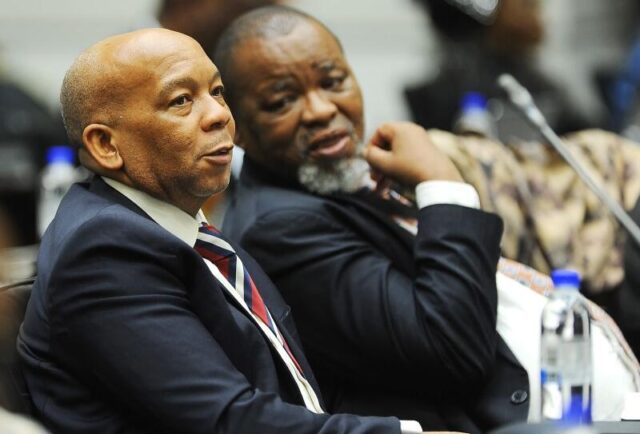Energy experts say the new powers granted to the Minister in the Presidency responsible for Electricity, Kgosientsho Ramokgopa, are limited and insufficient to deal with the country’s load shedding crisis.
ENERGY experts say the new powers granted to the Minister in the Presidency responsible for Electricity, Kgosientsho Ramokgopa, are limited and insufficient to deal with the country’s load-shedding crisis.
On Friday, the Presidency said President Cyril Ramaphosa had transferred to the Minister of Electricity all powers and functions contained in Section 34(1) of the Electricity Regulation Act, previously entrusted to the Minister of Mineral Resources and Energy Gwede Mantashe.
In terms of the new powers, Ramokgopa can, in consultation with the National Energy Regulator of SA (Nersa), determine that new generation capacity is needed to ensure the continued uninterrupted supply of electricity; determine the types of energy sources from which electricity must be generated; and the percentages of electricity that must be generated from such sources.
The Presidency also said Ramokgopa will work full-time with the Eskom board and management to end load shedding and ensure that the Energy Action Plan announced by the president is implemented without delay.
Reacting to the announcement, Clyde Mallinson, an energy expert, said Ramokgopa does not have enough powers to end load shedding or solve the energy crisis.
“The fact is that these powers have been with other ministers and they have not been able to end load shedding or solve the energy crisis.
“Load shedding is a long-term problem and unfortunately there is no short-term solution where we can say load shedding will end in two years.”
Mallinson added that while getting the Eskom coal fleet availability to 80% was a good plan, it was not a permanent solution to the electricity crisis.
“In the long term we have to look at ways to build more capacity. This includes looking at renewable energy and solar energy. South Africa is noted for having bright sunshine compared with European countries. We need to make use of this and be a leader in solar energy. Remember, we need to have alternative energy sources as we can’t keep being in a situation where if a power station breaks down a whole country is affected by load shedding.”
Professor Anton Eberhard, an energy expert, said that Ramokgopa has not been granted any meaningful powers.
“It’s only Section 34 determinations. Although Cyril Ramaphosa said the electricity minister is empowered to implement the 5-point Energy Action Plan, there are issues as the electricity minister does not have authority to implement it. Number one is to fix Eskom, but Minister Ramokgopa has no executive authority over Eskom.
“In addition, the procurement of new, renewable energy generation capacity from Independent Power Producers (IPPs) falls under Mantashe’s portfolio.
“The final point is the fundamental reform of the sector. Here we find that the Electricity Regulation Act (ERA) bill falls under Minister Mantashe while the overseeing of Eskom is done by the Minister of Public Enterprises, Pravin Gordhan.”
Chris Yelland, an energy expert, said that the powers that were handed over to the Minister of Electricity were very limited.
“Essentially, it’s only Section 34 powers that have been handed over to Minister Ramokgopa. Unfortunately, most of Section 34 has already been done (planned for) for the next few years by Minister Mantashe in the Department of Mineral Resources and Energy. So in terms of the Section 34 powers there is very little that Minister Ramokgopa can do.
“The Integrated Resource Plan (IRP) that has to come out either later this year or next year remains with Minister Mantashe and there’s nothing the Minister of Electricity can do about that.”
Yelland added that the Minister of Electricity was being seen as a short-term appointment.
“Minister Ramokgopa has no budget, no staff and he doesn’t have enough powers.
“It’s very difficult to see the minister’s appointment making a meaningful change to the energy crisis when he’s only going to be there for a short time and the majority of the powers are still lying with the Department of Mineral Resources and Energy.”
Samantha Graham-Maré, DA spokesperson on electricity, said that Ramaphosa has failed to provide decisive leadership on the energy cluster as the country now has two ministers in charge of the Electricity Regulation Act – Ramokgopa and Mantashe.
“Unless Ramaphosa takes active steps to address the confusion that has been created by his proclamation, there is no way of knowing who will be in charge of the IRP policy, Nersa and IPP office between Mantashe and Ramokgopa.”








